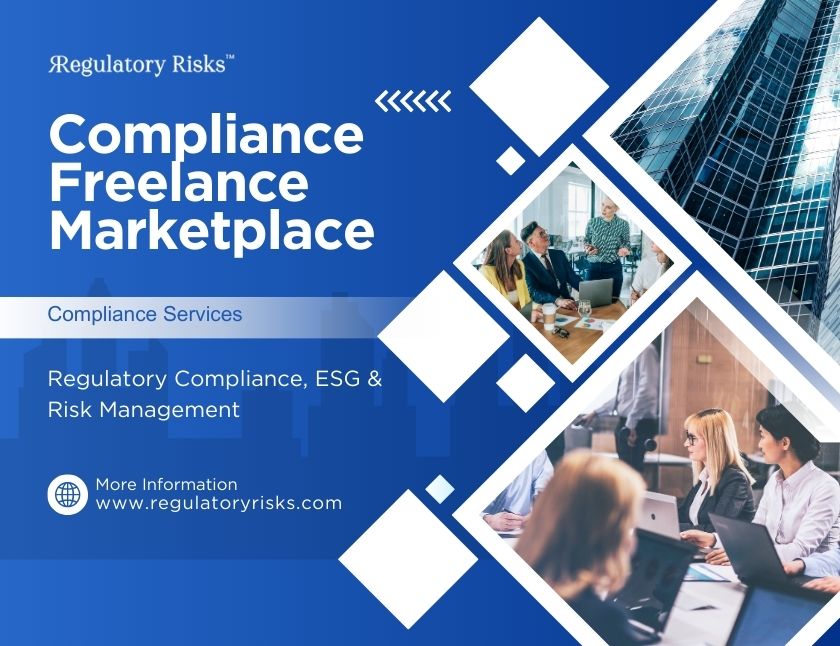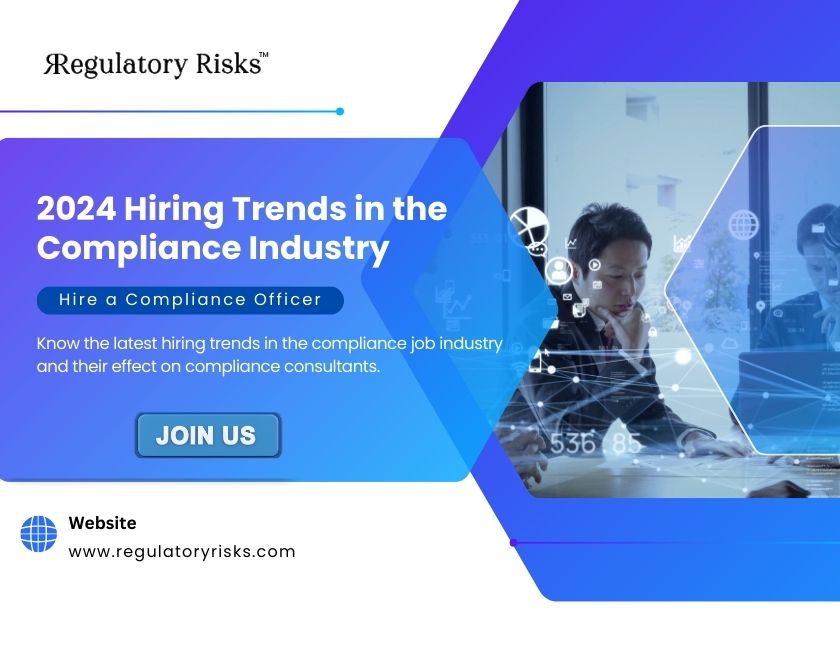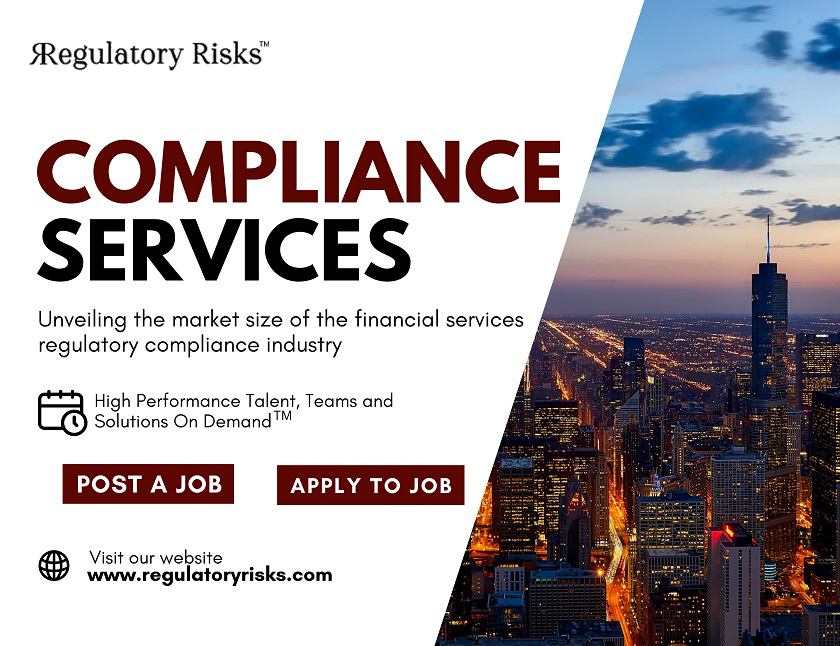In today's complex and highly regulated business environment, regulatory risk consulting has become an essential field. Thus, providing critical support to organizations in navigating compliance challenges and mitigating risks. This article explores careers in risk management and compliance consulting and the advantages and disadvantages of pursuing a career in these areas. Moreover, know the pathways to enter the field and the considerations between becoming freelance compliance consultants or permanent employees within compliance jobs. Additionally, we will highlight how platforms like Regulatory Risks can help professionals advertise their skills and connect with potential clients.
The Role of Regulatory Risk Consulting
Regulatory risk consulting involves advising businesses on how to comply with regulations and manage various risks that could impact their operations. Hence, this can include financial, operational, legal, and reputational risks. Moreover, Risk management consultants help organizations identify, assess, and prioritize risks while developing strategies to mitigate them. Whereas, compliance consultants, on the other hand, ensure that companies adhere to laws, regulations, and internal policies.
Advantages of a Career in Regulatory Risk Consulting
High Demand and Job Security
With the increasing complexity of global regulations, there is a growing demand for risk management consultants. Hence, companies across various industries, from financial services to healthcare, need experts to help them stay compliant and manage risks. Moreover, this demand translates into strong job security and numerous career opportunities.
Diverse Career Opportunities
A career in regulatory risk consulting offers diverse opportunities. Freelance compliance consultants can work in various industries, including banking, insurance, pharmaceuticals, and more. Hence, this diversity allows professionals to gain broad experience and develop expertise in multiple sectors.
Intellectual Challenge
The role performed by risk management consultants can be intellectually stimulating and requires stayingup-to-date with changing regulations, analyzing complex data, and developing innovative solutions. Therefore, this constant challenge can be rewarding for those who enjoy problem-solving and continuous learning.
Impactful Work
Regulatory compliance consultants play a crucial role in helping organizations avoid penalties, maintain their reputations, and achieve their business objectives. Knowing that your work, the provision of compliance services, directly contributes to a company’s success can be highly satisfying.
Disadvantages of a Career in Regulatory Risk Consulting
High Pressure and Stress
The role of regulatory risk compliance consultants often involves high pressure and stress. Thus, consultants must ensure that companies comply with stringent regulations, and failure to do so can result in severe penalties. The responsibility can be daunting and demanding.
Constant Learning and Adaptation
Regulations and industry standards are continually evolving. Therefore, consultants must invest significant time and effort into staying informed about the latest changes and adapting their strategies accordingly. This can be exhausting for those who prefer a more stable and predictable work environment.
Travel and Long Hours
Roles, especially those in large, regulated institutions, may require significant travel and long working hours. Balancing multiple clients and projects can be challenging, affecting work-life balance.
Pathways to a Career in Regulatory Risk Consulting
Educational Background
Most regulatory compliance consultants who have permanent compliance jobs hold a bachelor’s degree in a related field such as finance, law, business administration, or a related discipline. Advanced degrees or certifications, such as a Master’s in Business Administration (MBA), Certified Regulatory Compliance Manager (CRCM), or Certified Risk Manager (CRM), or a diploma from the International Compliance Association (ICA) can enhance career prospects and credibility.
Gaining Relevant Experience
Entry-level positions in risk management, compliance, or auditing can provide valuable experience. Working in these roles allows individuals to develop a deep understanding of regulatory requirements and risk management practices. Internships or part-time jobs in related fields can also be beneficial.
Building Skills
Key skills for a successful career in regulatory risk consulting include analytical thinking, attention to detail, strong communication, and problem-solving abilities. Developing expertise in specific regulations relevant to your target industry, such as the Sarbanes-Oxley Act (SOX) for financial services or the General Data Protection Regulation (GDPR) for technology companies, is also crucial.
Freelance Consultant vs. Permanent Employee
Freelance Consultant
Advantages:
Flexibility: Freelance consultants have the freedom to choose their clients, projects, working hours, and often, location. This flexibility can lead to a better work-life balance and the opportunity to pursue personal interests.
Higher Earning Potential: Freelancers can often charge higher hourly rates than permanent employees, especially if they have specialized skills or a strong reputation.
Diverse Experience: Working with different clients across various industries provides freelancers with a broad range of experiences and the ability to build a versatile skill set.
Disadvantages:
Income Instability: Freelancers may face periods of low or no income between projects. Building a steady client base and managing cash flow can be challenging.
Lack of Benefits: Freelance compliance consultants do not receive traditional employee benefits such as health insurance, retirement plans, or paid leave. They must manage these aspects independently.
Administrative Burden: Freelancers are responsible for handling administrative tasks such as invoicing, marketing, and tax filing, which can be time-consuming.
Permanent Employee
Advantages:
Job Security: Permanent employees like chief compliance officersare typically thought to have more stable income and job security compared to freelancers. They benefit from steady paychecks and long-term employment contracts. However, this assumption has started to be challenged recently due to consistent layoffs and constant reorganizations.
Benefits and Perks: Companies offer benefits such as health insurance, retirement plans, paid leave, and professional development opportunities.
Team Support: Working as part of a team provides access to resources, mentorship, and collaboration, which can enhance job performance and career growth.
Disadvantages:
Less Flexibility: Permanent employees have less control over their schedules and projects. They may need to adhere to company policies and face limited opportunities for flexible working arrangements.
Potential for Less Variety: Working for a single employer may limit exposure to diverse projects and industries compared to freelancing.
Leveraging Regulatory Risks for Career Advancement
For individuals seeking to hire a compliance officer or become freelance compliance consultants, platforms like regulatoryrisks.com offer invaluable support. Here’s how:
Access to Opportunities
Regulatory Risks provides access to a wide range of freelance compliance jobs and consulting opportunities. Professionals can browse listings, apply for projects that match their skills, and connect with potential clients across various industries.
Showcase Your Skills
The platform allows hire a compliance officer to create detailed profiles highlighting their expertise, experience, and achievements. This visibility can attract clients looking for specific skills and help consultants stand out in a competitive market.
Network with Peers
Regulatory Risks offers hire a compliance officer and networking opportunities with other professionals in the regulatory risk and compliance services field. Building a strong risk management consultantsnetwork can lead to collaborative opportunities, knowledge sharing, and referrals.
Continuous Learning
The platform provides resources, industry updates, and best practices to help regulatory compliance consultants stay informed about the latest regulatory changes and trends. This continuous learning ensures that professionals remain competitive and knowledgeable in their field.
Conclusion
A career in regulatory risk consulting offers numerous benefits, including high demand, diverse opportunities, intellectual challenges, and impactful work. However, it also comes with its share of challenges, such as high pressure, constant learning, and potential travel demands.
To enter this field, individuals should focus on acquiring the right educational background, gaining relevant experience, and developing essential skills. Deciding between a freelance consultant and a permanent employee role involves weighing the benefits of flexibility and higher earning potential against the stability and benefits of traditional employment.
Platforms like Regulatory Risks can significantly enhance career prospects by providing the chief compliance office raccess to opportunities, showcasing skills, facilitating networking, and offering continuous learning resources. Whether you choose to freelance or seek permanent employment, leveraging such platforms can help you succeed in the dynamic field of regulatory risk consulting.




